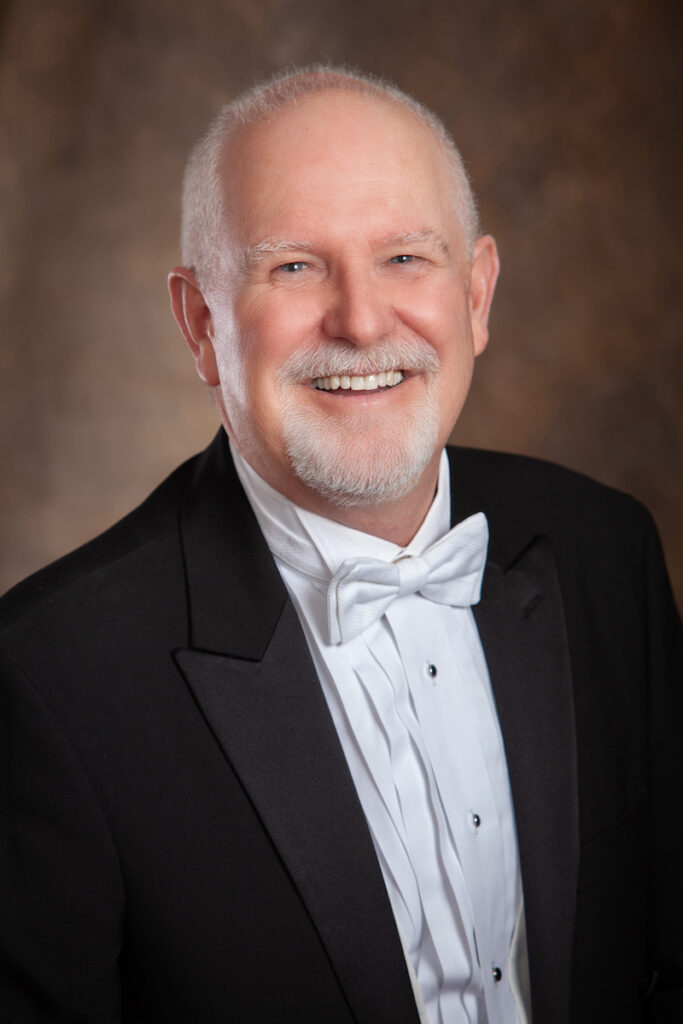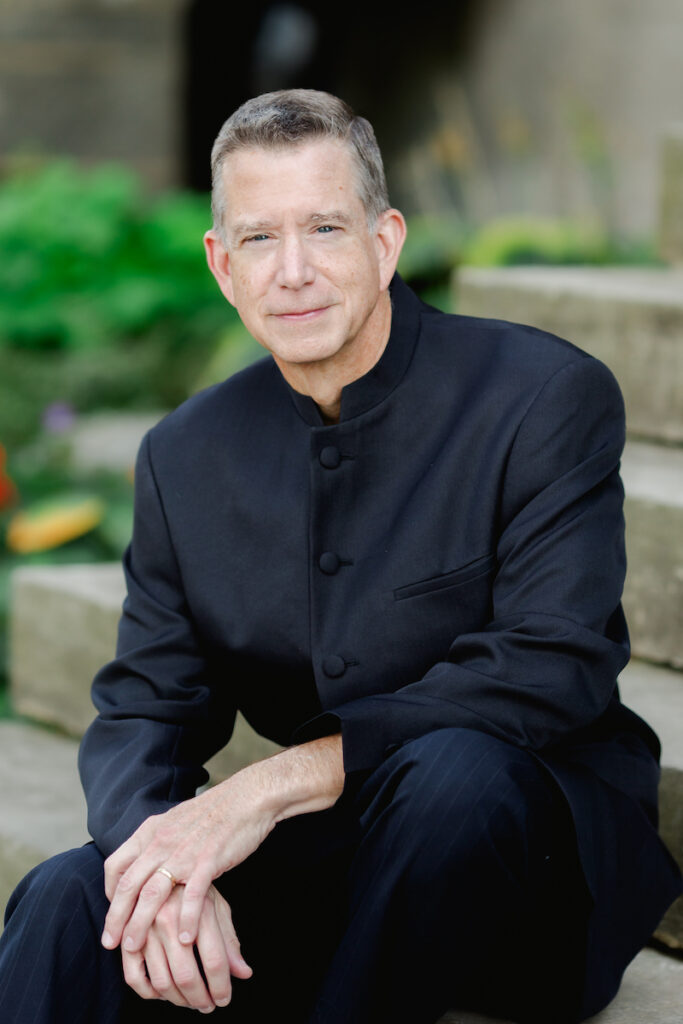
Candidate: Dr. Jamie Spillane

Dr. Jamie Spillane is Director of Choral Studies at the University of Connecticut where he oversees a choral program with eight choirs, directs the UConn Concert Choir and Chamber Singers, and teaches undergraduate through doctoral choral conducting and choral literature classes. Dr. Spillane’s research lies in choral festival music, and his articles have appeared in the ACDA Choral Journal. Recent acclaimed performances of UConn Choirs include conducting a collaboration of performances throughout New England with CONCORA of Craig Hella Johnson’s Considering Matthew Shepard and the world premiere of Steven Sametz’s A Child’s Requiem, a work on the Sandy Hook (CT) tragedy.
A highly sought-after festival conductor, choral clinician, and adjudicator, Dr. Spillane has conducted All-State and honor choirs throughout the United States from Arizona to New Hampshire. He made his conducting debut at Carnegie Hall in 2016 and has returned multiple times. A recent year found him conducting both the Connecticut All-State Mixed Chorus as well as the Indiana All-State Vocal Jazz Ensemble, and in March 2024 he will return again to Carnegie Hall to direct the National Concerts Honor Chorus.
Prior to his collegiate career, Dr. Spillane taught public school music in Puerto Rico and Connecticut, and for many years was chair of the Ledyard High School Music Department in Ledyard, Connecticut. At Ledyard, he directed a choral program that grew to include over four hundred singers performing in ten award-winning choirs. The program was twice selected as a GRAMMY Signature School as a top school for music education in the United States. These choirs performed throughout America and Europe and at state and division conferences of ACDA and NAfME/MENC. Following Ledyard, Dr. Spillane studied at the University of Arizona where he taught undergraduate conducting and directed the Symphonic Choir, the premier undergraduate choir. He was the Director of Choral Activities at Iowa Wesleyan College where he was honored as the Chadwick Teacher of the Year, and Roberts Wesleyan College in Rochester, NY. At UConn, Dr. Spillane was awarded the School of Fine Arts New Scholar Award. And, currently, the UConn Choirs tour overseas every two years, performing in Europe’s most beloved performing spaces from Ireland to Italy.
Dr. Spillane studied conducting under Dr. Bruce Chamberlain, Dr. Peter Bagley, Lawrence Doebler, Helmut Rilling, and Robert Page, and his students have gone on to teaching and leadership positions at schools and colleges throughout the nation. Former students also sing with some of the most prestigious choral organizations including Cantus, Chanticleer, the U.S. Army Chorus, Voce, CONCORA, Elevation, and Highline Vocal Jazz. As a church musician, Dr. Spillane was the Director of Choirs at St. Mark’s United Methodist Church in Tucson and First United Methodist Church in Mt. Pleasant, Iowa. Serving community choirs, Spillane directed the Eastern Connecticut Symphony Chorus, the University of Arizona University Community Chorus, the Mt. Pleasant Chorale in Iowa, and the UConn Festival Chorus.
Dr. Spillane holds a Bachelor of Music in Vocal Performance from Ithaca College, a Master of Music Education from the University of Connecticut, and a DMA in Choral Conducting from the University of Arizona. He served on the Editorial Board for E.C. Schirmer Music. He has been very active in leadership roles of ACDA and NAfME/MENC, serving as the Collegiate R & R Chair, Conference Chair, and President of Connecticut Chapter of ACDA; as well as Vocal Jazz R & R Chair and Conference Planning Committee for the ACDA Eastern Division; Conference Chair for the Iowa Choral Directors Association; Region Director and Student Advisory Board for Connecticut Music Educators Association, as well as on the NAfME – National Advisory Board for Choral Music Education. He was selected as CT-ACDA Choral Director of the Year in 2015.
Personal Statement: Dr. Spillane
I am honored to accept the nomination for the office of President of the Eastern Division of the American Choral Directors Association. I have loved ACDA since I was a young choral director; this organization has informed and inspired me, and the experiences I have had as part of ACDA have provided the foundation of much of what I know about choral music. I have been honored to serve ACDA in many capacities, including President of Connecticut ACDA, Conference Chair for the Iowa Choral Directors Association, and the ACDA Eastern Division Planning Committees. When I joined ACDA, it was the ACDA of Robert Shaw, Weston Noble, and Dale Warland. These were all icons of the choral world, creating astounding music to which we all could aspire. But I have been so pleased and excited for the changed landscape of ACDA over the years—especially in the past decade—as we have worked to embrace inclusion, diversity, and change in every aspect of our profession, from creating mission and vision statements and enacting them in policies and practices. I have been blessed in my career to spend time teaching music at all levels and to all ages. I have directed K-12 public school choirs, church choirs, community choirs, collegiate choirs, dozens of All-state and honor choirs and I have directed the premiers of large choral orchestral works and conducted on stages throughout Europe and even Carnegie Hall. The best gift from these experiences is that it has given me some insights into the many needs of our great and very diverse ACDA community. What is most important for the future of our profession is all the opportunities that lie before us. As Eastern Division President, the job is to embrace those opportunities to gather our talented and hardworking members together to explore what areas need our attention and to support and find ways we can best serve our communities. We must look to refine expectations of music literacy (namely, what counts as music literacy, expanding this notion of how one makes music), of gender, of age, and to seek out the best of music that should be performed. We will celebrate what is wonderful in our organization and continually work to embrace new avenues of inclusion in our diverse community. I hope to see you all in February as we Raise Our Voice at our Eastern Division Conference in Providence.
Candidate: Dr. John Warren

John F. Warren is Professor of Music and Director of Choral Activities at Syracuse University, where he conducts choirs, and teaches both graduate and undergraduate courses in conducting, choral literature, and rehearsal techniques. During his eighteen-year tenure, Syracuse University choirs have performed at two state and three Eastern Region ACDA Conferences, including Rochester in 2020, and have toured throughout the Northeast United States and Canada, as well as Europe and South America. The Syracuse University Singers performed for the 2017 National Conference of the National Collegiate Choral Organization in Baton Rouge, Louisiana. Internationally, Syracuse University Singers won the 2015 Grand Prix at the Florilegé Vocal de Tours in France, which entitled them to compete in Varna, Bulgaria in May 2016 as a finalist in the European Grand Prix for Choral Singing. Dr. Warren travelled back to Varna to judge the 2017 International Choir Competition. The choir’s first album, Mysteries and Wonders is readily available (). Dr. Warren is a regular guest conductor with Symphoria, the professional orchestra of Syracuse, New York.
Dr. Warren has served various leadership roles in ACDA since 2003. He has been a repertoire and resources Chair, a member of the International Activities National Standing Committee, a planner and leader of conferences, and from 2019-21 was NYACDA President.
A remarkable musician and educator, Dr. Warren has received many awards such as the 2016 NYACDA Choral Director of the Year and has won the 2011 and 2022 Faculty Excellence Awards from the College of Visual and Performing Arts at Syracuse University. Prior to coming to Syracuse, Dr. Warren was the Director of Choral Activities at Erskine College in South Carolina, where he was awarded the 2005 Younts Excellence in Teaching Award.
He was the NYACDA Choral Director of the Year in 2016 and has won Faculty Excellence Awards from the College of Visual and Performing Arts at Syracuse University in 2022 and 2011. Prior to coming to Syracuse, Dr. Warren was the Director of Choral Activities at Erskine College in South Carolina, where he was awarded the 2005 Younts Excellence in Teaching Award.Dr. Warren has lectured, adjudicated and conducted festival choirs throughout the Eastern United States, Brazil, Bulgaria, Cuba, and France, and has published research in the Choral Journal and the International Choral Bulletin.
Personal Statement
I am really honored to be nominated as a candidate for Eastern Region President. We have tremendous leadership in our region. Our recent presidents David Fryling, Peggy Detweiler, Penelope Cruz, Chris Kiver, and Amanda Hanzlik are among the many colleagues I admire and respect. They are also my friends, and knowing they are all just a phone call away greatly increases my confidence that I can do a good job.
I love how ACDA has become more inclusive – working to serve all our constituents, rather than just those who perform at the highest levels and have access to rich resources. During my time as NYACDA President we strategized how we could serve our collegiate student members, because more than half our membership is college students. In the fall of 2022, we hosted the first NYACDA Collegiate Student Conference with sessions about how to interview for teaching jobs, lessons from recently new teachers, and masterclasses not only in gesture but also in rehearsing and teaching, among others. Seventy-five folks attended the first conference and ninety attended the second one in 2023. I would encourage the same approach for the Eastern Region. What do our members need? Whom can we serve better without sacrificing what we already do so well – honor choirs, immersion choirs, resources, performances, connection?
During my tenure as President, I also learned that Diversity, Equity, and Inclusion cannot just be something you believe and hope for, but something you DO. It must infuse everything – what repertoire you suggest at reading sessions, or the music your honor choirs perform, what your honor choir conductors look like, what your leadership team looks like, what topics are presented in sessions. Inclusion informs each decision and action.
Finally, ACDA’s vision and direction are not up to me, but up to us. Leading is about surrounding oneself with a group of wonderfully diverse, creative, diligent people. Then, listening to them, encouraging them, and facilitating what it is they want to do. I am very hopeful for our shared future in ACDA.
